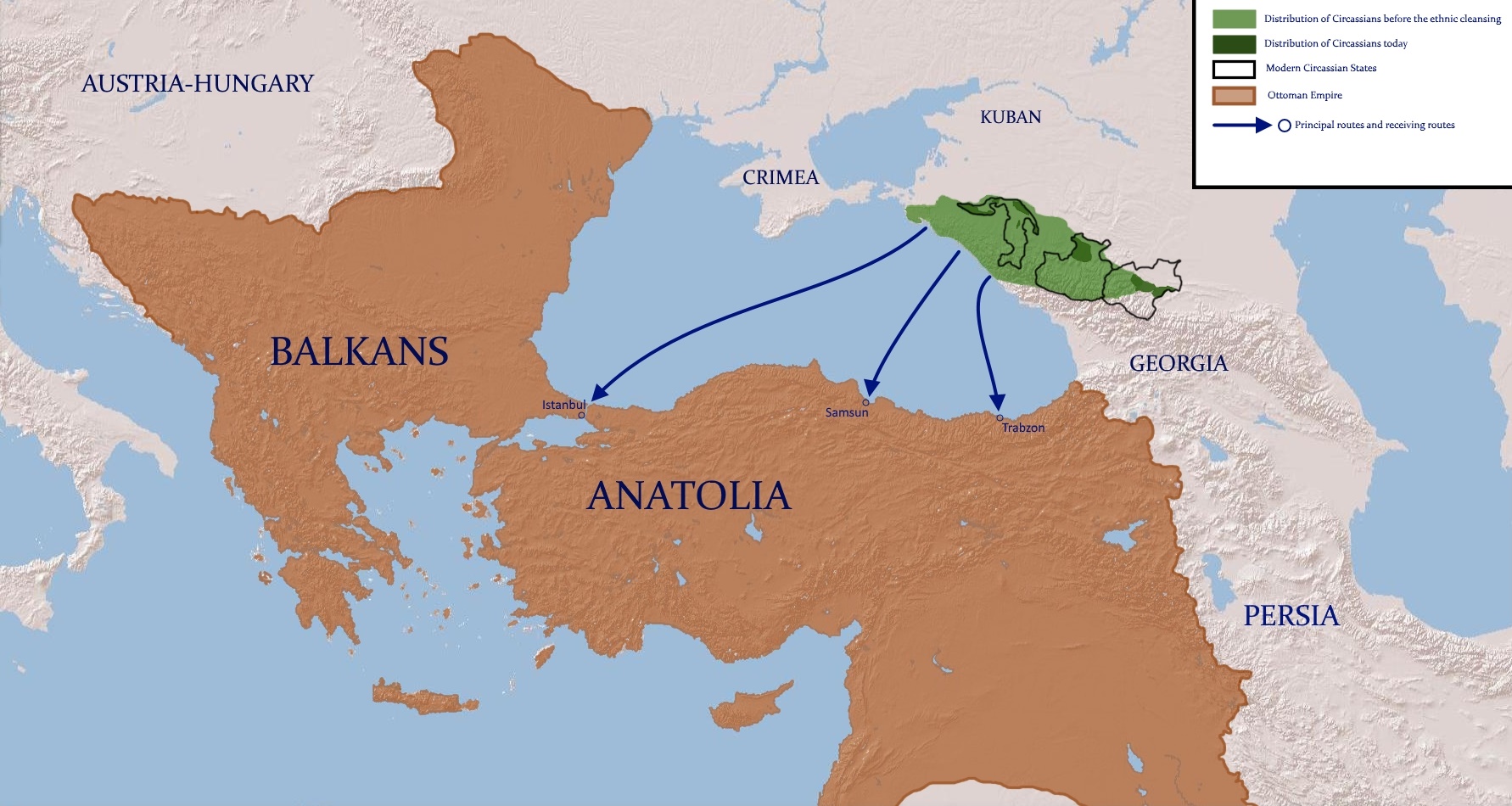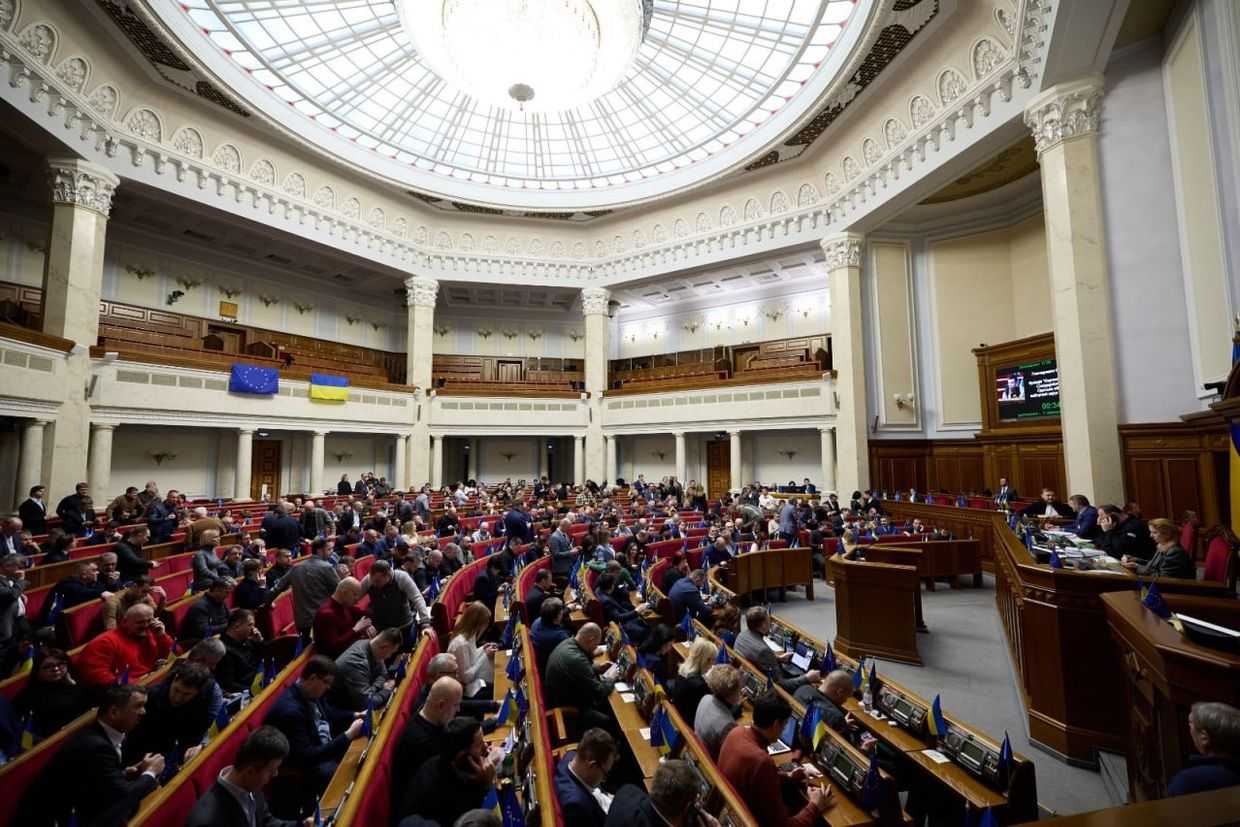Russian ambassador to Turkey provokes anger over Circassian conquest comments

Russia’s ambassador to Turkey has caused outrage among Circassian groups after suggesting that the late 19th-century conquest of historic Circassia and subsequent genocide was a ‘beautiful legend’ which was, in reality, a defensive act on the part of the Russian Empire.
Ambassador Aleksey Yerkhov was speaking in an interview with Russian state-owned news site Sputnik on 13 February about the prospects for Russian-Turkish relations.
He said that the understanding of the 1763–1864 Russo–Circassian War as an expansion of the Russian Empire in which the local population was expelled from the North Caucasus was a ‘beautiful legend’, and accused the Circassians of aggression against Russia.
According to Yerkhov, the conquest of the Caucasus was Russia’s response to raids by the Circassians.
‘The Russian government of those days tolerated all this for a while, but their patience ended, and the army went ahead — at first trying to “isolate” with those with whom one cannot live in peace, and then to completely stop their criminal way of life’, Yerkhov said.
Towards the end of the war, hundreds of thousands of Circassians — over 90% of the native population — were killed or expelled, with many settling in the Ottoman Empire.

Commenting on this, Yerkhov said the Circassians were ‘presented an offer: either move to the plain, receive land, and begin to engage in productive labour, or emigrate.’
‘An incitement to ethnic hatred’
Yerkhov’s interview sparked outrage among Circassian organisations in the diaspora and in Russia and historians of the Caucasus.
On 14 February, the Federation of Turkish Caucasian Associations (KAFFED) released a statement condemning Yerkhov’s comments, which they said ‘distorted history’.
‘The Circassians are not immigrants who, as Yerkhov put it, abandoned their lands in obedience to the proposals of tsarist Russia.’
‘They were expelled from their homeland as part of Russia’s ethnic cleansing policy’.
‘For our ancestors and for us, this exile is not a “beautiful legend(!)”, as Yerkhov put it, but a bitter past’, the statement said.
On 18 February, Khauti Sokhrokov, President of the International Circassian Association, which is based in Russia, published a statement calling Yerkhov’s comments ‘erroneous and destabilising, incorrect, and inciting ethnic hatred’.
[Read more on the International Circassian Association: Unambitious state-backed Circassian groups hide a growing nationalism in young Circassians]
He said that these statements ‘contradict the documented historical facts, the studies of many [Russian] and foreign historians who studied the problems of the Caucasian War’.
‘Russian–Adyghe [Circassian] relations had centuries-old traditions of good-neighbourliness, mutual assistance, and military community. Despite having gone through much suffering, the Circassians do not shift the blame to today’s Russia.’
He added that the organisation did not assume ‘that the words of Aleksey Yerkhov reflect the position of the Ministry of Foreign Affairs [of Russia]’.
Asker Sokht, the chair of Russian Circassian group Adyghe Khase’s (‘Circassian council’) Krasnodar Krai branch wrote on Facebook that Yerkhov’s remarks were ‘extremely anti-scholarly and consciously aimed at provocation’.
Sokht told OC Media that Yerkhov’s statements contradicted efforts by Russia and Russian Circassian groups over the past 25 years to establish friendly relations with the Circassian diaspora.
‘A national catastrophe’
According to Aslanbek Mirzoyev, a historian at the Kabardino-Balkarian Institute for Humanitarian Studies, in the 19th and 20th centuries, official Russian historiography did not deny that the main reason for the conquest of the North Caucasus by the Russian Empire was its geopolitical interests in this region.
‘The expulsion of the Circassians was preceded partly by extermination, and partly by the deportation to the Ottoman Empire, of the Nogays and Crimean Tatars’, Mirzoyev told OC Media.
He said that long before the end of the Caucasian War, from the beginning of the 1850s, the Russian government was considering relocating Circassians from the North-West Caucasus to other parts of the empire.
‘This plan was rejected because the Circassians would never have voluntarily agreed to such a relocation. A solution was found when the Ottoman Empire was forced to consent to receive Circassian refugees’.
According to Mirzoyev, in 1861 the Russian Empire presented an ultimatum to the Circassians — to leave the mountains and move to the lowlands. Mirzoyev said that these territories would not have accommodated more than 100,000 people, never mind 1.5 million Circassians.
According to Mirzoyev, about 70,000 Circassians bowed to the ultimatum while the rest defended their lands and were evicted to Turkey.
‘They [military operations] ended in 1865 with the deportation of several thousand Circassians from the Khakuchi society, who were literally caught and hunted in the mountains by search units of the regular army and Cossacks’, Mirzoyev said. ‘A lot of documented evidence of this ethnic cleansing has long been published’.
According to him, the collapse in the number of the Circassians as a result of the hostilities, deportations, and the resulting famine and disease led to a ‘national catastrophe’.
‘The number of Kabardians [a Circassian sub-group] in the Caucasus decreased 10 fold (from 300,000 to 30,000) as a result of Russian aggression, and the Ubykhs, Khakuchis, and some other Circassian sub-groups completely disappeared from the face of the earth’.
Mirzoyev said that two Russian scientific conferences in 1989-1990 recognised that the Caucasian war was colonial in nature.
‘This is an agreed opinion accepted by the majority of Russian historians, and Yerkhov should have gotten acquainted with it before making such statements that offend the historical memory of an entire nation’, he added.
According to Aslan Boriyev, a historian and teacher at the North Caucasus Academy of Management, Yerkhov justified the massacres of tens of thousands of Circassians, shifting the blame for them on the Circassians themselves.
Boriyev told OC Media that the boldness of Yerkhov’s words on the Circassian issue suggests that the Russian leadership had a similar opinion that the extermination of the indigenous peoples of the Caucasus in the 19th–20th century was historically justified.
‘So far, Moscow has not reacted to the statements of its representative’, he said.
[Read more: ‘The Great Day of Unity’ vs ‘the tragedy of the genocide’: Kabardino-Balkaria’s contradictory public holidays]







